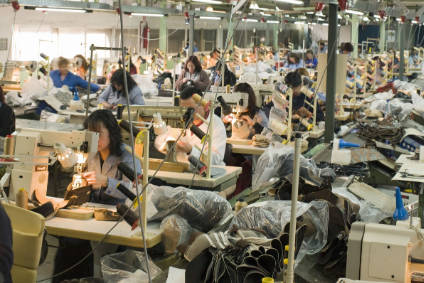
A joint approach from all actors in the apparel industry is required to tackle harassment in garment factories worldwide, according to the Fair Wear Foundation (FWF).
A non-profit organisation, FWF works with garment brands, factories, trade unions, NGOs and governments to improve working conditions for garment workers in 11 production countries across Asia, Europe, and Africa.
“We need to support women workers in garment factories to raise their voices, so the industry can detect and tackle harassment,” says associate director Margreet Vrieling.
More and more consumers are becoming aware of unfair working conditions in the fashion industry, like child labour and low wages, Vrieling adds, but there are other, less-known negative working practices that have become normalised, such as gender-based harassment and violence in garment factories.
“Harassment and discrimination can be hard to spot on the factory floor,” she says. “But that doesn’t mean they don’t occur. We need to become more aware of this and address it as proactively as possible.”
Sexual harassment and violence against women are widespread problems in the garment industry, where women make up about 80% of the workforce. In many garment factories, production pressure is high, and yelling—often sexually explicit—is common practice, FWF says.

US Tariffs are shifting - will you react or anticipate?
Don’t let policy changes catch you off guard. Stay proactive with real-time data and expert analysis.
By GlobalDataFemale garment workers are often young, poor and living in a society dominated by strong gender hierarchies. A “disturbingly” high percentage of garment workers report verbal and physical abuse as well as sexual harassment, including assault and rape, the organisation adds, noting preventing and solving cases of harassment in garment factories requires a joint approach.
“Factory managers, garment brands and NGOs such as ours all need to take responsibility to ensure that workplaces are free from harassment,” Vrieling continues. “Brands need to know that this is happening and act on it; our auditors need to be able to spot it; everyone who buys clothes should be aware of it.”
Meanwhile, for sustainable solutions, FWF says female workers need to be supported in voicing their complaints.
“Women need to feel safe enough to talk about harassment and feel supported by factory management,” Vrieling explains. “By lending our voices and platforms to their fight, these workers can speak out against the injustices they face every day. Brands and factories must be held accountable for responding to these injustices.”
As a way of addressing gender-based violence, FWF and its member brands have established anti-harassment committees in factories in Bangladesh and India. Workers in these factories are slowly starting to speak out and work towards solutions, the group says.
In addition, FWF has recently initiated a supervisor training programme for women in India with the aim of reducing economic discrimination and to change gender stereotypes. As part of the programme, male supervisors were also trained to become more aware of gender matters and violence-free conflict solving methods.



